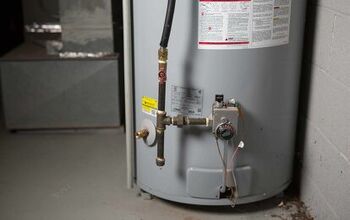Can A Landlord Refuse Rent Payments? (Find Out Now!)

We have all heard about people who have paid rent just one day too late and gotten evicted. Other times, we’ve heard about people who have also tried to pay in part. Once in a blue moon, you might hear about a landlord who says no to a rent check. Is that actually legally possible? Moreover, why would they do that?
Your landlord has the right to refuse rent payments, but only if certain situations apply. If your landlord served an eviction notice, you’ve paid rent late one too many times, or if you’re paying using a method the landlord specifically doesn’t accept, it’s okay for them to say no.
It’s a bit mind-boggling to think that some landlords might actually turn down cash. However, it happens more frequently than you would think. It’s time to discuss why this could happen.
When Is A Landlord Not Allowed To Refuse Rent?
99 percent of the time, your landlord is legally required to accept rent. Most people will not have this issue happen to them in their lifetimes. A landlord is generally not allowed to refuse rent if:
- You are in good standing on the lease. If you pay your rent on time and haven’t received a notice of eviction, your landlord probably has no right to refuse rent.
- The rent you’re paying is the total amount. Partial payments are a bit less cut-and-dry. You might have differing laws here depending on the state you live in.
- You are paying via a method deemed accessible in the rental agreement. This is key! Your landlord can refuse payment if you try to pay in Bitcoin, antiques, or even credit cards if they want to.
When Is A Landlord Allowed To Refuse Rent Payments?
If you are in a situation where a landlord is legally allowed to refuse payments, it’s often because you’re in serious trouble. In these situations below, your landlord has the right to refuse rent payments sent by you:
- You’ve paid rent late a ton of times. If you have paid your rent late a bunch of times, often to the warnings of your landlord, you may have given your landlord reason to refuse rent. It’s the landlord’s way of saying, “ENOUGH ALREADY!” (This issue, of course, depends on the state you live in.)
- You have been served an eviction notice or have already moved out. A landlord has the right to refuse payments once eviction notices have been served. The same can be said if you’ve already moved out and the landlord wants to bring you to court. One might say it’s the “point of no return.”
- You tried to give your landlord a partial payment. Depending on the state, your landlord may have the right to refuse a partial payment. This is doubly true if this is not a “one-time” thing.
- Your landlord has reason to believe that you have violated the lease agreement. For example, if police were called to your apartment as a result of criminal activity, that might be a lease violation. In this case, your landlord might refuse the rent money to start the eviction process.
Why Would A Landlord Illegally Refuse Payments?
Very shady landlords might end up trying to evict tenants who are, in general, good standing with them. They will often do this by trying to refuse payments in hopes that you will rollover. Once they “don’t receive” the payments for a long enough period of time, they will try to start the process of eviction.
Can A Landlord Evict You If They Refused The Payment You Offered?
Possibly, but it depends on the full scope of the situation. If you offered to pay in credit, got refused, and didn’t try to pay in check, you could get evicted. It is the tenant’s responsibility to get the payment in on time. However, if you’re trying to pay after violating multiple lease terms, the rejection may be as a result of the lease term violations.
What Should You Do If Your Landlord Refused Your Rent Money?
This is a sticky situation because the best course of action depends on the reason for the refusal, if any is given. Here’s what we suggest you do:
- If it’s a matter of just having the wrong payment method, pay your landlord through another method. This may also require you to offer them the lump sum payment at the end of the month. If you cannot do that, talk to your landlord about what you can do to avoid eviction.
- If your landlord continues to refuse payment, ask for a reason in writing. If you cannot get a reason, contact a lawyer immediately and start putting together a paper trail. People who have legitimate reasons for a rent refusal may need to address bigger issues. (For example, if you’re getting evicted, worry about that more!)
- Try to get the payment sent over once more after attempting to address the reason. If it’s a partial payment or just due to a minor mishap, you may be able to work something out.
- Call a real estate lawyer to help you determine what you can do. Landlords who are trying to illegally oust renters are going to have a lot of different techniques they might employ. Trying to fight a landlord who’s framing you for nonpayment is not going to be easy. You will need a professional on your side.
Should You Consider Breaking Your Lease Over A Rent Refusal?
If you have reason to believe that your landlord is trying to get you off the property, it may be time to evaluate what you’re getting out of your apartment. Tenants who have rent-controlled apartments probably should fight their landlords in court for the right to stay put. It would save you tons of money in the long run.
However, if you have a regular apartment that doesn’t really have many amenities, things might be different. It may be time to re-evaluate why you’re there. Are you really happy with your landlord? Are you having a hard time getting your month-to-month rent on time?
While it is not ideal, it may be in your best interest to talk to your landlord about breaking the lease. In many cases, it’s actually the best solution for all parties involved.
Related Questions
Can a landlord accept e-payments or credit cards?
Landlords don’t really have a restriction on e-payments or credit cards. If they choose to hire a merchant processing company, they will have no problem taking credit cards or e-payments. However, most landlords find this to be expensive. As a result, the majority of landlords choose to stick to cash or checks.
Can your credit score get affected by an eviction?
Evictions themselves do not show up on credit reports. However, the nonpayment of rent can. If you are late by 30 days or more on rent, landlords have the right to report it to the credit bureaus. Whether or not they will, though, depends on whether or not they choose to participate in rent reporting.Not all landlords choose to report rent payments to credit bureaus. Though they often have the option to do so, it’s up to personal discretion. Many landlords choose to do this as a punitive measure against people who have been particularly bad renters.
What is a “cure or quit” notice?
A “cure or quit” notice is a letter that acts as a final warning for a bad tenant. This is a letter that says, “We have an issue. You need to stop doing X/fix Problem X immediately. Otherwise, we are going to ask you to vacate the premises.”This type of notice is extremely important to watch for. If you do not fix issues addressed in a “cure or quit” notice, you will end up getting an eviction notice.

Ossiana Tepfenhart is an expert writer, focusing on interior design and general home tips. Writing is her life, and it's what she does best. Her interests include art and real estate investments.
More by Ossiana Tepfenhart



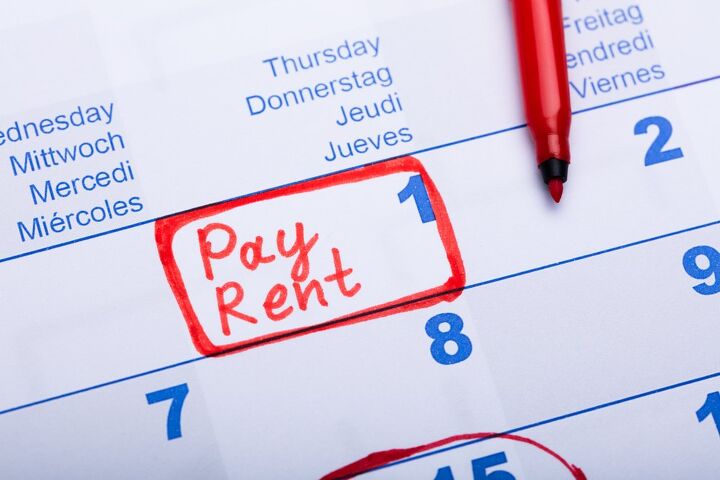






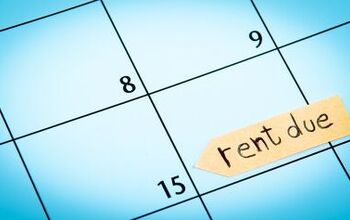
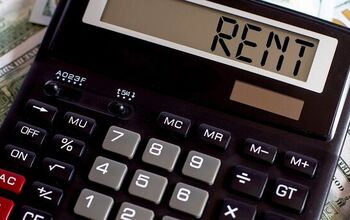


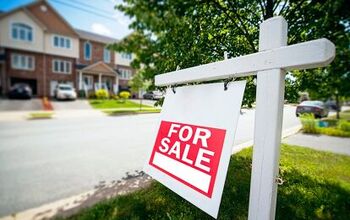




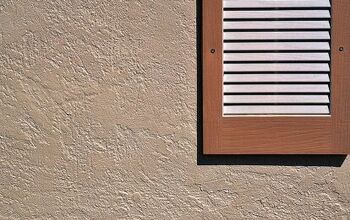

![How To Reset A Whirlpool Cabrio Washer [In 5 Easy Steps!]](https://cdn-fastly.upgradedhome.com/media/2023/07/31/9076531/how-to-reset-a-whirlpool-cabrio-washer-in-5-easy-steps.jpg?size=350x220)



